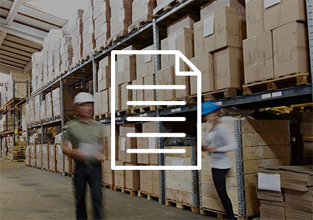Enjoy Life Foods
Double-Digit Growth for Enjoy Life Foods is Sweet
Think of the world’s top chocolate chip brands. Holding spots one through three are the usual suspects—Nestle/Tollhouse, Ghirardelli and Hershey. But coming in fourth is something of a sleeper—Enjoy Life Foods. For the Chicago-based manufacturer of allergy-free products, its success with chocolate chips is exemplary of why it has earned a spot on coveted fastest growing companies lists and the attention of 100-plus year-old brands. Enjoy Life bakes non-GMO, gluten-free ingredients and foods that are free from the 14 most common food allergens—and are both safe and delicious.

COMPANY
Enjoy Life Foods
LOCATION
Chicago, Ill.
INDUSTRY
Manufacturing
EMPLOYEES
225
REVENUE
$65 million
NUMBER OF USERS
110
NUMBER OF COUNTRIES
2 (United States, Canada)
SYSTEMS REPLACED
QuickBooks, Fishbowl
OTHER SOLUTIONS CONSIDERED
SAP Business ByDesign, Microsoft Dynamics
NETSUITE PRODUCTS IMPLEMENTED
NetSuite
Advanced Manufacturing
WMS
Inventory Management
Advanced Customer Support
Learning Cloud Support
IMPLEMENTATION PARTNER
NetSuite Professional Services
LEARN HOW CLOUD ERP CAN STREAMLINE YOUR BUSINESS.

“We’re going to be at a steady state of growth for the next several years. We think NetSuite’s going to help us compete to win.”
Recipe for Growth
- By 2015, Enjoy Life’s story attracted the attention of Mondelez International (purveyor of brands like Oreo, Nabisco, Cadbury). The company paid some $81 million to acquire the brand and operate it as a wholly-owned subsidiary.
- With $40 million in revenue at the time and SKUs approaching 100, Enjoy Life’s QuickBooks and Fishbowl systems couldn’t handle the volume and complexity of transactions, crashing frequently and failing to make crucial inventory information visible in real-time—everything from expiration dates, to the ability to compare and analyze information related to production.
management processes strained
- NetSuite’s inventory management functionality was a big part of Enjoy Life Foods’ choice to implement NetSuite over SAP in 2016. Today, volume is 50 percent higher, but working capital as it relates to inventory has only gone up 10 percent.
- In 2016, the company also opened the nation’s largest allergy-free manufacturing facility, a 200,000 square foot space in Jeffersonville, Indiana. Sales channels have expanded, Amazon sales have tripled over the last three years and the company is driving double-digit top line growth.
channels

































